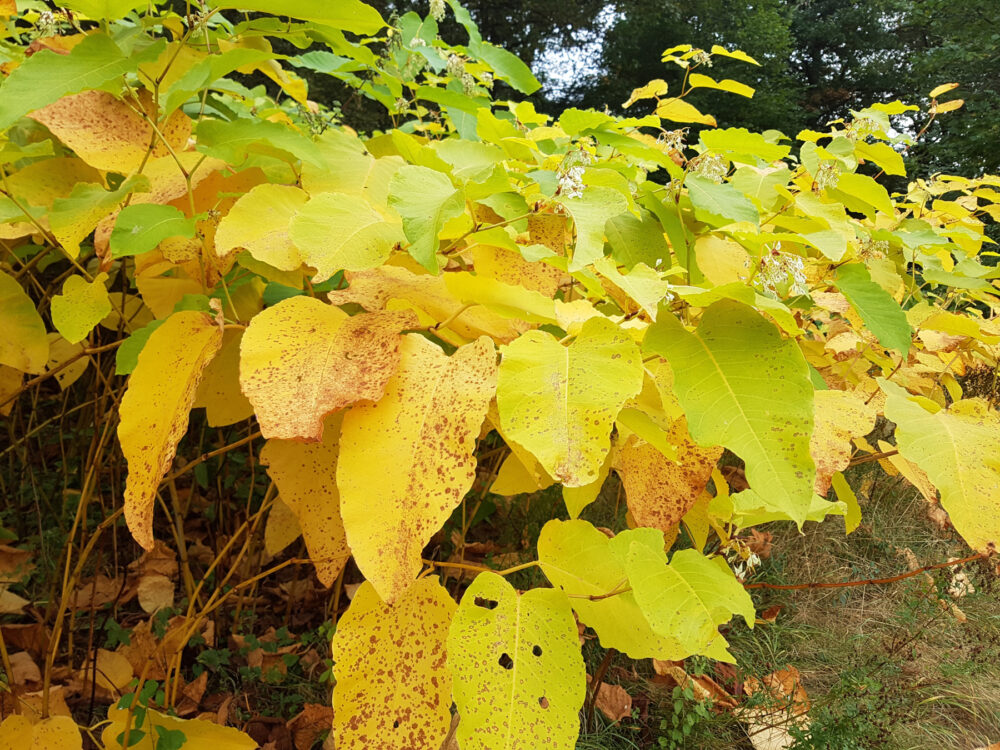Recent floods are spreading Japanese Knotweed and other invasive species, the Wildlife Trust has warned.
Volunteers and workers who surveyed the Wildlife Trust nature reserves after the flooding discovered Japanese Knotweed rhizomes which were not previously apparent.
These rhizomes are horizontal underground stems from which the plant grows. Once knotweed has taken hold, it is very hard to eradicate.
The seeds of invasive species Himalayan Balsam and Giant Hogweed have also been found at a wildlife sanctuary, reports the Daily Telegraph.
Woodhouse Washlands nature reserve, in Rotherham, was inundated with 1.5 metres of water when the River Rother burst its banks.
The knotweed has been found on previously pristine land, including at Woodhouse Washlands. A spokesperson said:
A huge volume of rubbish has been deposited on the nature reserve, including tons of plastic and invasive plant species.
The rhizomes of highly invasive Japanese knotweed have been found on the reserve, and it’s likely the Himalayan Balsam and Giant Hogweed seeds will also have been brought on to the reserve.
A Defra spokesperson said that knotweed is known to spread this way and that riverbanks should be monitored after a flood.
Concerned about Knotweed on your land? Contact the experts today!
They advise that rhizomes should be gathered up and burnt on site if possible, and definitely not put on the compost heap or normal garden waste.
The hibernating animals at the reserves have also suffered due to the floods, with small mammals and amphibians thought to have been put at significant risk.
Woodhouse Washlands is one of the few sites in the UK where extremely rare great crested newts flourish, and they are hibernating at this time of year.
The site is home to a good population of great crested newts, which will be hibernating at this time of year. Some of their hibernation sites would have been flooded out.
Eleven ponds were also flooded, which will affect the newts directly, but river fish colonising the ponds will potentially harm the newt population, as they predate the eggs and larvae of this protected species in the next spring.
Wildlife Trusts spokesperson












